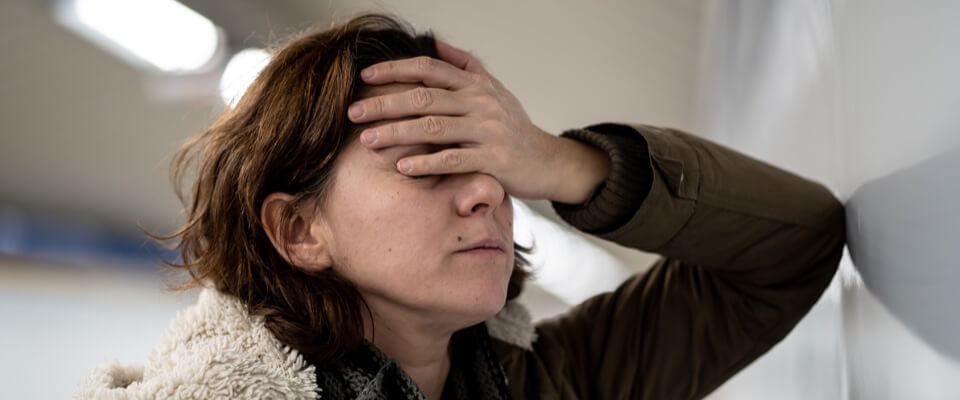A first date. A work meeting or event where you’ll need to present or speak. A birthday party where you’ll be expected to mingle, make small talk, and meet many new people.
If you’re feeling anxious just thinking about these situations, you’re not alone. Many people feel shy or self-conscious when it comes to these types of social interactions, especially if they involve some element of performance or observation. Nervousness in these settings is completely normal and nothing to be alarmed by.
If, on the other hand, your anxiety around being social becomes debilitating, motivating you to avoid certain situations or turn to substances, like alcohol and drugs, to cope, then it might be time to find a solution that makes regular social interactions more manageable.
What causes social anxiety?
Scientists have linked social anxiety to several different factors: it can be influenced by genetics, brought on by a particularly traumatic social event, or even caused by underdeveloped social skills.
Most often, the medical community agrees that a combination of these elements leads to social anxiety, with environmental factors playing a particularly important role.
For example, if social anxiety runs in your family, your parents can pass this trait on to you. However, in many cases, past events or circumstances — even the way that you were parented — can lead to feelings of stress around social situations.
The good news is that with the right coping mechanisms in place, you can effectively manage much of the panic attached to the prospect of a room full of strangers or a first dinner with your partner’s parents — without turning to self medication, which can exacerbate social anxiety and cause further issues.
Substance abuse and social anxiety
There’s a strong relationship between social anxiety and substance abuse, with the American Anxiety and Depression Association of America reporting that just less than a quarter of people who suffer from social anxiety disorder also battle with alcohol abuse or dependence.
Even those without a formal social anxiety disorder diagnosis may turn to substances to cope with distressing and overwhelming feelings in social situations. After all, drugs and alcohol may effectively reduce inhibitions, can have a relaxing effect, and are often linked to feelings of confidence and self-assurance — it’s not called “liquid courage” for nothing.
Unfortunately, the stress relief you do get from using substances to deal with social anxiety can lead you to start leaning on this coping mechanism before the social event, not just during.
This kind of association can create a vicious and unhealthy cycle that, in actuality, can do more long-term harm than short-term good. According to the Substance Abuse and Mental Health Services Administration, excessive drinking can actually bring on and even create anxiety. The anxiety can settle in just a few hours after drinking and last well into the next day. Some studies have also found that on a molecular level, drinking can make your brain more susceptible to anxiety problems.
How to cope with social anxiety in a healthy way
While seeking out substances to make social situations less stressful may not be a good coping mechanism, there are plenty of healthy ways to manage and ultimately reduce your social anxiety.
First and foremost, making a choice to acknowledge the issue and stop ignoring it is fundamental. Once you can admit to yourself that you need to invest some time and energy into addressing this problem, you can start to move forward.
After acknowledging the issue internally, here are a few easy ways to start to get a handle on your social anxiety:
-
- Improve your social skills. One of the reasons you may be experiencing social anxiety is that you never developed some of the basic skills that can help you succeed in social situations. If this is the case for you, just know that it’s never too late to start building new abilities. From finding a formal social skills training course to educating yourself about how to communicate, the options for upskilling yourself in this department are endless.
- Get support from your friends and family. Asking for help from your loved ones may be especially difficult if you’re battling with social anxiety. In extreme cases, your discomfort may leave you without a network of people to lean on. If you are lucky enough to have family, friends, or neighbors close to you, then try to openly share with them and also turn to them to practice any of the social skills you’re trying to improve. You may even want to ask them to accompany you to a few nerve-wracking events.
- Work with a therapist. Hundreds upon hundreds of research studies point to the success of therapy, particularly cognitive behavioral therapy, in the treatment of social anxiety. This kind of approach can help people change the way they respond to anxiety, meeting the unease with acceptance and calm rather than frustration and fear. If you think you’re interested in this approach, start by finding the right therapist for you.




